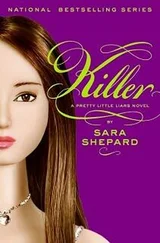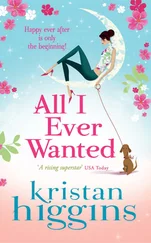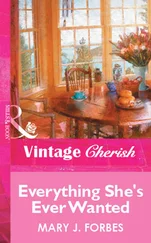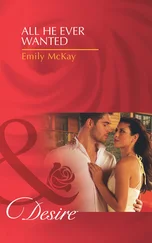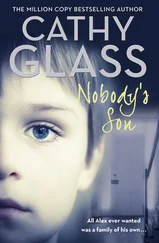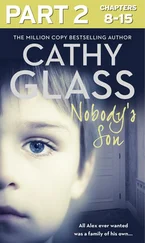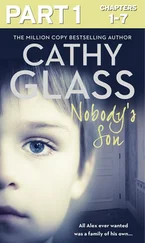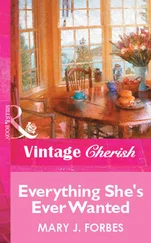Sylvie was already standing on the large brick side porch, her hands clasped at her waist, a brave smile on her face. As always, she was impeccably dressed in an ironed lavender skirt and a perfectly tucked-in eyelet blouse. She even wore heels, little lavender things to match the skirt, and pearls looped twice around her throat. She dressed this way to go to the grocery store, to go for a walk. The ring Charles’s father had given her a few months before he died glimmered under the porch light.
‘I made banana bread, Charlie,’ she said after everyone hugged. ‘Your favorite.’
They entered the house through the kitchen. Dim golden light dappled through the stained-glass window and across the white-painted wooden cabinets, the ancient, rounded Sub-Zero refrigerator, and stout, space-age MasterChef stove. The smell of banana bread drifted comfortingly through the air. Sylvie had put an old classical record on the turntable, presumably plucked from the collection that belonged to her grandfather.
‘Sit, sit,’ Sylvie urged, gesturing toward the kitchen table. A bunch of vacation property brochures were spread out on the surface. As Joanna and Charles sat down, a very different sort of song thumped through the walls to their left. Joanna cocked her head, listening to the drubbing beat, the muddy bass, the muffled shouting. She tried to meet Charles’s eye. Scott’s suite shared a wall with the kitchen.
‘So listen – we’re so behind!’ Sylvie said, fluttering from the oven to the cupboards to the sink and then repeating the cycle all over again, though bringing nothing to the table. ‘We haven’t picked out a vacation house for this summer! But I think I found a good one. It’s on the water in Cape May. July seventh to the twenty-first.’
She plucked a magazine from the pile on the table and leafed to a marked page. ‘Here. It has seven bedrooms. It seems like a lot, but you know those houses – they’re all huge. Really, I wonder if we should just buy a place instead of rent. Then we could decorate it the way we want.’
Charles shifted in his seat. Joanna wondered if he was thinking what she was thinking: planning a vacation in the middle of a scandal seemed inappropriate. Only, was that what this was? A scandal?
‘And it’s brand new,’ Sylvie went on, pointing at the tiny pictures of the house’s interior: a country kitchen with white bead board on the walls, a master bedroom with lavender striped curtains, a shed that was filled with beach balls, bicycles, plastic kayaks, and kites. ‘It won’t have that smell; you know that old beach smell? Even the nicest houses get it sometimes.’ She flipped through the catalogue to another page. ‘Though this one’s nice, too. It’s closer to town. It’s hard to decide.’ She looked up at Charles, her face softening as if a thought had just struck her. ‘Honey, don’t think you have to come for the whole time. I know you have to work. But at least for a week, right? And then for the weekends?’
The volume next door rose higher. Joanna glanced at Charles again, but his eyes were fixed stubbornly on the rental magazine.
‘And we’ll need so many supplies,’ Sylvie added. She grabbed a Land’s End catalogue from the bottom of the pile. ‘I’ve marked lots of things.’ She turned to a page that displayed flashlights, travel mugs, a fondue pot. ‘We could make s’mores on the beach,’ she crowed gaily. ‘Wouldn’t that be fun?’
‘Huh,’ Charles murmured vaguely.
Sylvie folded her hands over the magazine. ‘How is work, by the way?’
Charles shrugged. ‘Busy. You know.’
‘Dealing with any interesting clients?’
There was an abrupt, fuzzy thud next door, and then a faster-paced song. Joanna flinched, but she didn’t bother glancing at Charles again. He was obviously ignoring it.
‘Not really,’ Charles spoke over the noise. ‘Same ones.’
‘And Joanna?’ Sylvie turned politely to face her daughter-in-law. ‘How’s the new house coming along?’
Joanna smiled. ‘Good. Lots of boxes still to unpack, though.’
‘Have you met any neighbors?’
She looked down. ‘Uh, no one yet. But I’m sure we will soon.’
Sylvie nodded. Joanna could tell she was searching for something more specific she could ask her about – a hobby, maybe – but was coming up with nothing. ‘Excellent,’ she finally said. And then, ‘Goodness. The bread.’
She scampered to the oven, slid on two mitts, and pulled the banana bread pan from the tray. Steam curled around her face, fogging her small, wire-framed glasses. She carried the pan over, removed one of her oven mitts with her teeth, and set it on the table. Then she placed the pan on top of the mitt. The knife slid easily against the sides of the pan, and more steam gushed out. She pushed the pan to Charles and he cut himself a thick slice and put it on his plate. He used the side of his fork to cut off a bite.
Joanna waited and waited. Just as he was about to put the bite in his mouth, she touched his arm and said in a voice far whinier than she intended, ‘ Charles ?’
He looked up; she nudged her chin toward the pan. He lowered his fork. ‘Oh. Sorry.’
He began cutting her a piece, but she changed her mind and waved him away. ‘I’ll be back,’ she muttered, standing.
‘Joanna,’ Charles protested. ‘I didn’t know you wanted any. You don’t usually eat dessert.’
‘It’s fine,’ she said loudly, wheeling out of the room. ‘I just…the bathroom.’ She rounded the corner into the hall.
It was probably silly to feel slighted over banana bread. More than that, Joanna just felt too weird sitting there, looking at vacation houses, chatting about work, ignoring what was obvious, especially with Scott fiddling about with the stereo one wall away. Nothing seemed to ever get to the Bates-McAllisters, though. Joanna certainly hadn’t been raised like this. If Scott was her brother and her parents were faced with such a scandal – and if her parents were still together – at least they would confront the problem head-on. Her mother would be a hurricane of panic, making sweeping what-will-the-neighbors-think-of-us statements. Her father would be smacking a fist into an open palm, declaring he’d never wanted to live in such an arrogant, stick-up-your-ass part of Pennsylvania in the first place – he was from the western part of the state, where what one drove and where one shopped and the way one pronounced certain vowels didn’t matter as much. His anger would just make her mother panic more – If only you would’ve tried harder to fit in, Craig, this might not have happened, she might say – and that, in turn, would stoke his fury, and they’d circle each other like two worked-up dogs, their bad energies becoming so toxic that a bite was inevitable.
Joanna walked down the house’s grand hall, which was lined on both sides by heavy, gold-framed oil paintings of scenic vistas of foxhunts, Scottish moors, and generals on horseback. Charles had first brought her to Roderick to meet his family two Julys ago, and though she’d been building up the Bates-McAllisters and their estate in her mind long before she and Charles met – though Charles didn’t know anything about that – the house had lived up to every one of her expectations. Sylvie’s assiduously tended-to garden had been abloom, the tiki lamps by the pool cast soft shadows across the slate patio, and there was a full moon over the roof, so perfectly centered that it was as though Sylvie and James had commissioned it to hang there for them alone.
She’d been blind to the house’s imperfections for a long time afterward, too. She didn’t notice the wet wood smell. She didn’t see the chips in the leaded glass or the stains on the intricate woodwork or the large brown patch on the ceiling from a previous leak. It didn’t occur to her that the highboy was water-warped or that the oil paintings needed a professional cleaning or that the chandeliers were missing many of their crystals. And so what if one of the rooms was filled with nothing but piles of papers, old, cloth-wrapped paintings and a piano with chipped, yellowed ivory keys? So what if the library had a mouse hole the size of Joanna’s fist? So what if the oil painting of Charles Roderick Bates, Charles’s great-grandfather, which hung over the stairs, freaked Joanna out every time she passed by it? All old aristocratic homes had charming idiosyncrasies. And this was Roderick.
Читать дальше



